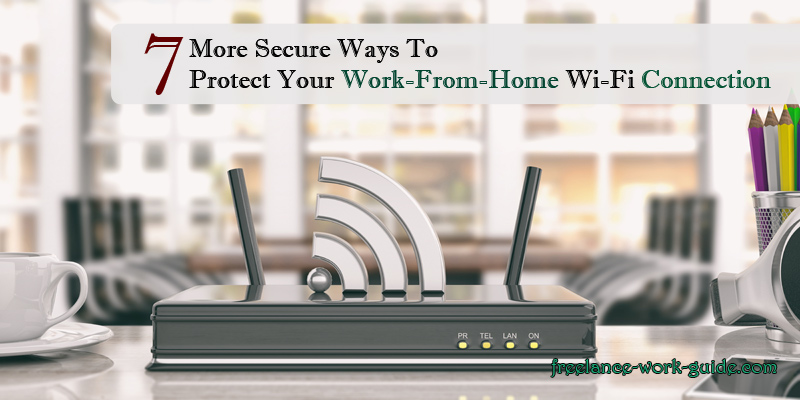
Wi-fi connection to the internet from home has become one of the most popular ways to work, with convenience and accessibility at the very top of the list for both freelancers and companies. Millions of small enterprises and freelancers conduct their most important scheduling, interviewing, and work from their houses.
But when you work from home, cybersecurity needs, and risks are different.
Freelancers are experts within their chosen field, but anywhere their knowledge of internet or device security lacks, freelancers are putting their businesses and clients at unnecessary risk.
If you connect your business from home, then you will want to pay attention to this article.
As a work-from-home freelancer for years now, I have learned more than a few tricks for a safer, better wi-fi connection. It protects your home, your devices, and your clients all at once.
Is your small enterprise or business wi-fi connection protected well enough, or a sitting duck in the vast ocean of cyberspace?
Security is something all freelancers and work-from-home professionals are encouraged to think about.
Here are 7 more secure ways to protect your work-from-home wi-fi connection.
Always Use Protection
Cybersecurity and device protection is not up to a corporation or department when you freelance, but instead it becomes an individual concern.
Freelancers from all industries should consider personal device security a top priority. Within business, better security means peace of mind for yourself (and for anyone who might hire you)
If you do not spare cybersecurity needs a second thought as a freelancer, now is the right time to change your mind.
Why Wi-Fi?

A wi-ficonnection is how most freelancers, enterprises, and small businesses link up to the internet.
The internet is how freelancers might contact their clients, update their websites, sync up with their devices, and backup their information to the cloud.
Here is the catch: While wi-fi connections are convenient for internet anywhere, they are also penetrable to hackers with even the most basic skills. Freelancers who are not taking precautions to protect their connectivity could place their entre business at risk.
Next, here is what work-from-home freelancers can do to ensure their connections are set up more secure from the start.
1. Change Your Administrator Password First
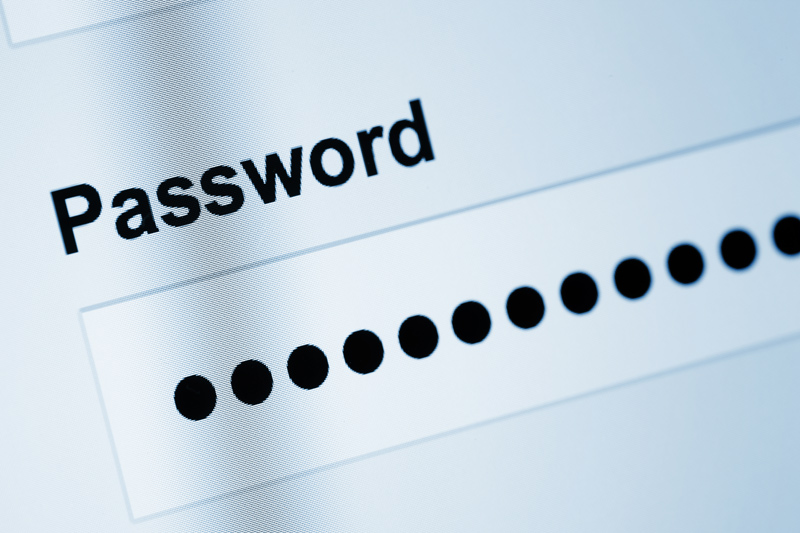
Almost every broadcasting wi-fi device is set up with an administrator username and password.
Administrator passwords are known for their weakness. Often, passwords are nothing more than “password” or “administrator”.
How safe is that for the connection that keeps your business in touch?
It is not.
If you want to make sure that your wi-fi connection remains for your devices alone, change the default details as the first thing you do.
2. Never Rely On Outdated Software

Business software should always be the most up-to-date versions recommended for use, and only downloaded from official sources.
When newer versions are released, the previous incarnation is likely to contain vulnerabilities, weaknesses, or backdoors left wide open to the potential of even a simple cybersecurity exploit.
Updated software is almost always more secure than its earlier counterparts. Official sources cut down on the potential of malware, viral loads, or keyloggers sneaking into software that appears safe on the surface.
It counts for your operating system, your browser, and especially the firmware used by your router.
3. Limit The Number Of Connected Devices
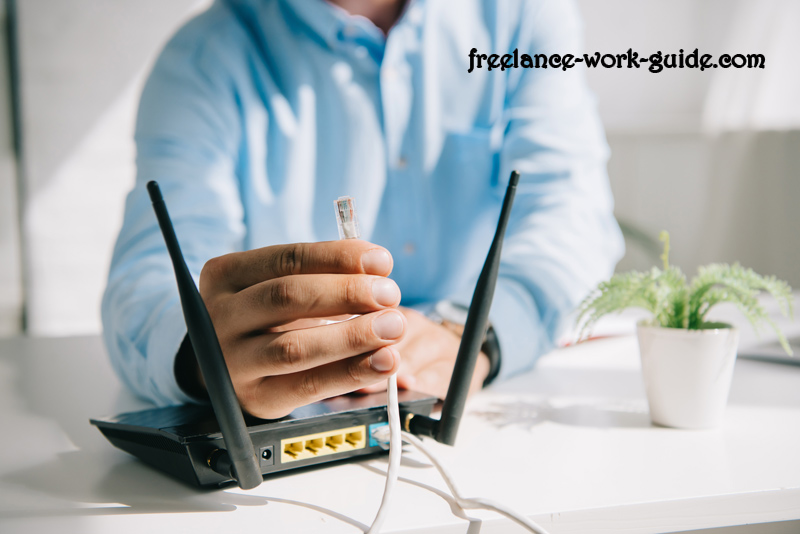
Mobile hotspots and internet routers can connect several devices to the internet simultaneously.
While this might be convenient for a freelancer with a household of internet users (or several devices), multiple connectivity leaves a potential gap for hackers to sneak by unnoticed.
Check connected devices, and make sure that known devices are the only ones connected. Additionally, limit the number of connected devices allowed to make sure nobody rides off your wi-fi.
If you spot an unrecognized IP-address or device, remove, or ban it via your internet device settings.
4. Disconnect From The Internet When Not In Use
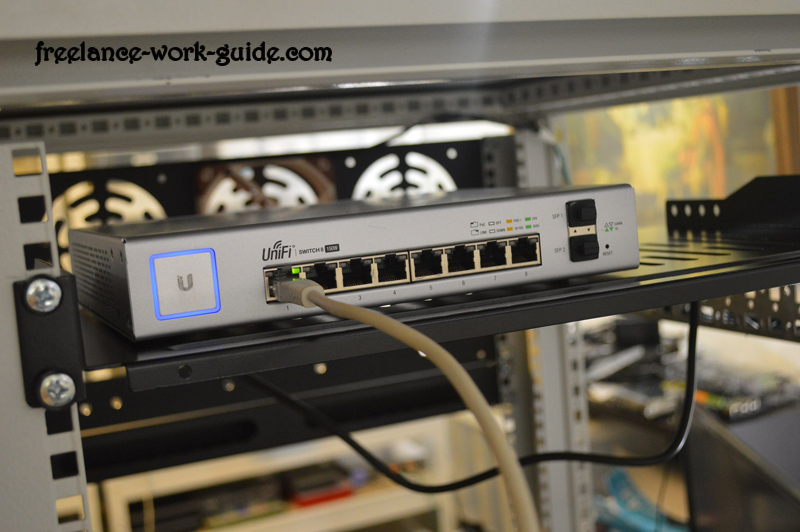
Devices that are left connected when they are not being used leaves a massive hole in the system for hackers who probe the potential of online systems that might be vulnerable to attack.
Larger corporations are usually cautioned by their IT departments to disconnect servers and systems when there is nobody in the office.
This is recommended to make sure the system cannot be accessed, monitored, or altered by third parties when there is no-one to see it. Left online, systems are wide open and often unchecked.
Do you leave your devices and wi-fi on when you do not need to?
5. Make Use Of A VPN (Or Virtual Private Network)

A Virtual Private Network (or VPN) allows the user to “bounce” details like their IP address and location through safe alternatives to their actual home address.
Anywhere the internet gets accessed, search engine bots and administrators know exactly what you access. Hackers can easily find the same information and turn it against the average internet user.
The use of a VPN makes it much harder for any third parties to get a potential lock.
Do you prefer knowing your system is safe?
Especially for any work-from-home freelancer who uses their home address to get online, the use of a VPN is always recommended.
6. Remember To Reboot Your Internet Device Often
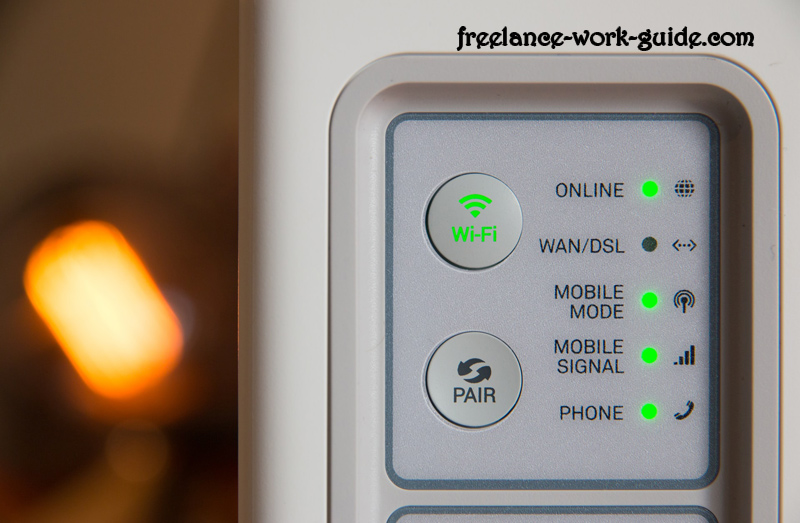
It is common advice in the tech world to “turn it off and on again” when almost any device malfunctions. The same advice could apply to a router, a smartphone, or a Sega Genesis in the older days.
What a reboot accomplishes is a reset of the system’s hardware and software. Any clogged files (or clashes) are given a chance to disappear when systems can run through the reboot.
Remember to reboot your wi-fi router often.
Leaving it connected for hours at a time might cause all sorts of system issues, and it might also be the cybersecurity hole a hacker is looking for.
7. Secure All Connected Devices
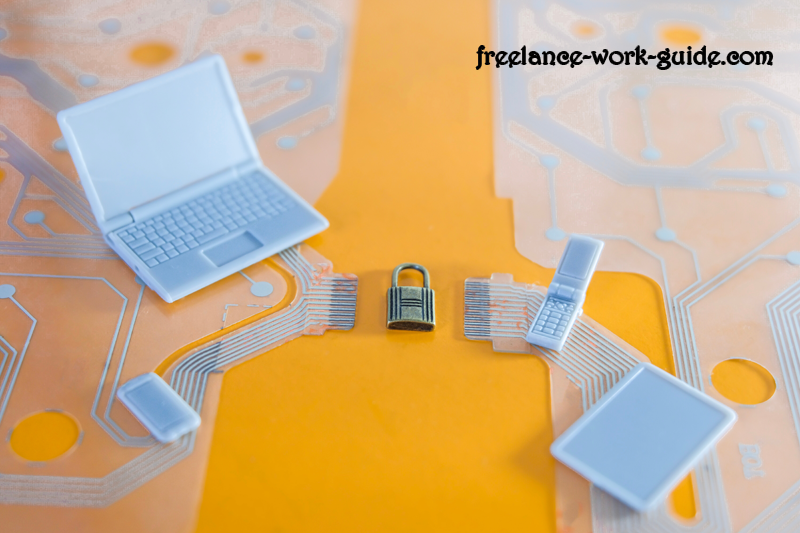
A network is only as strong as its weakest link.
Let us suggest that a person has three devices connected to their wi-fi router, but only two of those devices are as safe as they should be. One device gets infiltrated by a virus, which displays banner ads everywhere and forwards itself to everyone in the victim’s message inbox.
What happens if the unsafe device gets hacked? The other two (and all the information hosted on the network) are immediately compromised – and all it took was access to the weak link.
While this is only an illustration of how it could happen, wi-fi connections worldwide get hacked like this all the time.
Are you ensuring that your internet connection is as safe as it should be as a work-from-home freelancer? Use the comments section to share your stories or tips for other freelancers!
This Is a Guest Post Contribution from Alex J Coyne
Editor’s Note
Alex writes excellent cybersecurity guest post articles for us and it is looking for paid work in that field. If you are looking for a top cybersecurity writer, send us an email at john@identity-theft-scout.com and we will put you in touch with him.














